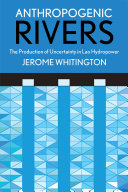

Most ebook files are in PDF format, so you can easily read them using various software such as Foxit Reader or directly on the Google Chrome browser.
Some ebook files are released by publishers in other formats such as .awz, .mobi, .epub, .fb2, etc. You may need to install specific software to read these formats on mobile/PC, such as Calibre.
Please read the tutorial at this link: https://ebookbell.com/faq
We offer FREE conversion to the popular formats you request; however, this may take some time. Therefore, right after payment, please email us, and we will try to provide the service as quickly as possible.
For some exceptional file formats or broken links (if any), please refrain from opening any disputes. Instead, email us first, and we will try to assist within a maximum of 6 hours.
EbookBell Team

5.0
68 reviewsIn the 2000s, Laos was treated as a model country for the efficacy of privatized, "sustainable" hydropower projects as viable options for World Bank-led development. By viewing hydropower as a process that creates ecologically uncertain environments, Jerome Whitington reveals how new forms of managerial care have emerged in the context of a privatized dam project successfully targeted by transnational activists. Based on ethnographic work inside the hydropower company, as well as with Laotians affected by the dam, he investigates how managers, technicians and consultants grapple with unfamiliar environmental obligations through new infrastructural configurations, locally-inscribed ethical practices, and forms of flexible experimentation informed by American management theory.
Far from the authoritative expertise that characterized classical modernist hydropower, sustainable development in Laos has been characterized by a shift from the risk politics of the 1990s to an ontological politics in which the institutional conditions of infrastructure investment are pervasively undermined by sophisticated ‘hactivism.’ Whitington demonstrates how late industrial environments are infused with uncertainty inherent in the anthropogenic ecologies themselves. Whereas ‘anthropogenic’ usually describes human-induced environmental change, it can also show how new capacities for being human are generated when people live in ecologies shot through with uncertainty. Implementing what Foucault called a "historical ontology of ourselves," Anthropogenic Rivers formulates a new materialist critique of the dirty ecologies of late industrialism by pinpointing the opportunistic, ambitious and speculative ontology of capitalist natures.